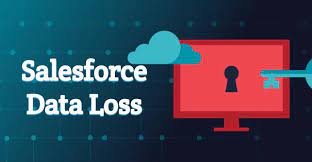UI and Data Loss
For years, the primary stumbling block hindering organizations from embracing cloud adoption has been the concern over data security, solutions, and safety. However, recent surveys indicate a significant shift, with cloud service providers like Salesforce playing a pivotal role in building trust, with adoption rates soaring as high as 65%. UI and Data Loss-user interfaces may be the weak link in your data security. As the leading CRM platform and a top-tier cloud solution boasting over 99% uptime, Salesforce instills confidence in its users. Yet, a lingering question remains: is your data truly secure? The resounding answer is yes; Salesforce’s service disruptions are exceptionally rare. However, the risk of data loss often stems from how companies interact with their Salesforce environment and handle cloud data manipulation. Each organization operates within its own instance of Salesforce, accessing data via standard applications like CRM or third-party tools. However, each interaction with this cloud data carries the potential for inadvertent errors and unwanted outcomes. Let’s dive into the primary causes of data loss within Salesforce in this insight: To mitigate the risk of accidental data loss, enhancing the Salesforce user interface (UI) is paramount. The UI’s design and flexibility, largely controlled by administrators and developers, significantly influence user interaction and data integrity. Benefits of an optimized Salesforce UI include: Here are strategies to optimize the Salesforce UI and minimize the risk of accidental data loss: While Salesforce offers robust data management capabilities, human error remains a risk factor. By implementing thoughtful UI enhancements and adhering to best practices, organizations can minimize the likelihood of data loss and ensure data integrity. Like Related Posts Salesforce OEM AppExchange Expanding its reach beyond CRM, Salesforce.com has launched a new service called AppExchange OEM Edition, aimed at non-CRM service providers. Read more The Salesforce Story In Marc Benioff’s own words How did salesforce.com grow from a start up in a rented apartment into the world’s Read more Salesforce Jigsaw Salesforce.com, a prominent figure in cloud computing, has finalized a deal to acquire Jigsaw, a wiki-style business contact database, for Read more Service Cloud with AI-Driven Intelligence Salesforce Enhances Service Cloud with AI-Driven Intelligence Engine Data science and analytics are rapidly becoming standard features in enterprise applications, Read more








